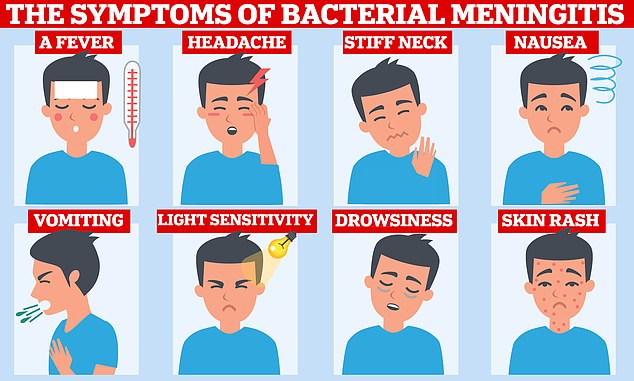A neurologist has taken to TikTok to issue a stark warning about the little-known dangers of honey.
According to US-based medic Dr Baibing Chen, the natural sweetener can be highly dangerous for young children, due to a life-threatening bacteria that can seep into honey.
In a video that’s been viewed nearly 400,000 times, the brain health expert said: ‘Never give honey to infants under one year old.
‘It may seem innocent, natural or even healthy, but honey can carry Clostridium botulinum spores.
‘In adults and older kids, our guts can usually handle them, but in babies, those spores can germinate, produce toxins and lead to infant botulism, which is a rare but life-threatening condition.’
Botulism happens when these toxins attack the nervous system (nerves, brain and spinal cord) and cause paralysis, which can affect the muscles that control breathing, leading to a fatal lack of oxygen in the body.
‘I’ve unfortunately seen cases of this, and something many parents don’t realise, but one spoonful can be enough to cause serious harm,’ said Dr Chen.
In the clip, Dr Chen, who posts to TikTok under the alias Doctor Bing, also warned of other, little-known common mistakes people make, which put their health at risk.
One is sharing drinks with others at festivals and parties, which could leave you fighting for your life.
The Mayo Clinic trained doctor explained taking a sip of someone else’s cocktail risks you coming into contact with dangerous pathogens, including those that trigger deadly brain infection, meningitis.
He said: ‘For some people, this is obvious, but for others, it sounds harmless, passing a cup around at a party, taking a sip from someone’s cocktail.
‘But I’ve seen where it can lead to, besides the risk of drugs being slipped into drinks, you can pick up all kinds of pathogens, and not just herpes, but also things like mono and enteroviruses, all of which can affect the brain.
‘I once treated a young adult who developed viral meningitis after a weekend of sharing drinks at a music festival.
‘They thought it was just a hangover until they started seizing[sic]. So even it seems like an overreaction, I’ll get my own glass.’
Meningitis is an infection of the protective membranes that surround the brain and spinal cord. It can be spread virally, which is most common and more easily treatable, or bacterially.
Around one in 10 people who develop the condition will die, according to research by Meningitis Research Foundation.

Bacterial meningitis, which requires urgent hospital treatment, affects the membranes in the spinal cord and brain
His final piece of potentially life-saving advice is to always wear a mask in dusty, dirty places, like an attic, basement or shed.
This is because fungal infections like Histoplasmosis and Cryptococcus can be ‘inhaled silently’, making their way into the brain.
‘These infections can cause meningitis or encephalitis months or even years later, and they’re incredibly hard to treat,’ said Dr Chen.
‘You don’t need to be [caving] in a jungle to get this, just cleaning an old attic or sweeping out a shed can be enough for some people.
‘For most people, this is not that big of a problem, but if you ever become immunosuppressed, your risk of developing something really serious gets higher.’
People become infected with histoplasmosis after inhaling spores of fungus that typically grows on bat faeces.
The disease infects the lungs and in serious cases spreads to other organs including the brain and spinal cord.
It’s been estimated that 40 per cent per cent of people diagnosed with a severe case will die.
Dr Chen’s followers echoed his warning about foregoing protective masks.
They posted beneath the clip: ‘My mom had to have part of her lung removed from cleaning a bird cage repeatedly.
‘She developed a bacterial lung infection and stayed in the hospital for an entire month. She almost died. Wear a mask or don’t own birds.
Another said: ‘My mother had histoplasmosis as a child, after working around a chicken coop. It shredded her lungs. X-rays looked like a snowstorm.
‘She had problems her whole life worth the aftermath, and it cut her lifespan dramatically after her cancer moved to her lungs.’












